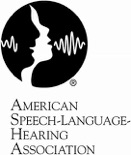Auditory and Speech-Language Services



Copyright 2022 OtoLing All rights reserved OtoLing Logo Trademark pending: Dr. Willard C. Hooks, Jr.
Willard C. Hooks, Jr., Ph.D. CCC-A/SLP
Willard C. Hooks, Jr. earned a Bachelor of Arts degree in speech therapy-elementary education (double major) and a Master of Arts degree in speech pathology from Louisiana Tech University. He earned a Master of Arts degree in Audiology and Speech Science from Michigan State University (MSU), following service in the United States Navy Reserve (Naval Aviation Schools Command - Pensacola, FL). In 2003 he earned a doctorate degree from MSU in Audiology and Speech Sciences with academic, laboratory, and research training through the MSU Neuroscience Program.
Hooks is a former assistant professor in the Department of Communication Sciences and Disorders at Saint Xavier University (Chicago, IL). He taught several courses including Language Disorders in Children, Introduction to Audiology, The Neural Bases of Communication Disorders, and Organic Disorders of Voice, Swallowing, and Communication Disorders. In 2011 Dr. Hooks resigned from teaching to dedicate his full attention to private practice, basic scientific research, and patient care.
Dr. Hooks is both an audiologist and a speech-language pathologist, certified by the American Speech-Language-Hearing Association (ASHA), and licensed by the state of Illinois. He is an ASHA Life Member and considered a master clinician for professional practice in the areas of neurogenic communication disorders and neurobehavioral disorders (e.g., ADHD and autism). Additionally, the diagnosis and treatment of auditory perceptual problems has been an essential component of a coherent strategy. His experience has been coupled to current trends in neuroscience and a holistic approach applied to pediatric, adolescent, and adult patients. Dr. Hooks has provided direct clinical treatment and therapy in a variety of settings including early intervention, public schools, private clinics, adult sub-acute rehabilitation facilities, and university settings.
Dr. Hooks applies a research-principled standard diagnostic protocol based on peer-reviewed literature and evidence-based practice. (1) auditory processing disorder, (2) symbolic dysfunction in children, adolescents, and adults, (3) cognitive linguistic difficulties, and (4) receptive-expressive language disorder. He has derived intervention strategies from time-honored theories and basic science. Several techniques have been synthesized from the fields of communication sciences and disorders, physiologic phonetics and acoustics, child development theory, and educational psychology.
Neuroscience is a way of thinking that has been derived from formal training in several areas including neurobiology, neurophysiology, pharmacology, and systems neuroscience. Dr. Hooks is a regular member of the Society for Neuroscience (SFN), which is comprised of over 30,000 neuroscientists, clinicians, and advocates from more than 80 countries.
Dr. Hooks integrates translational neuroscience with knowledge from communication sciences and disorders. His passion remains rooted in neuroscience, and approaching complex problems with hypothesis testing and applied research. Each evaluation report is an individual case study based on peer-reviewed research. He has been an advocate for academic preparation in science, technology, engineering, and mathematics (STEM) and public outreach in neuroscience. He has volunteered to serve ASHA in the Student to Empowered Professional S.T.E.P. mentoring program.
The Society for Neuroscience promotes neuroscience education in communities and schools—especially with children in the primary grades. As such, Dr. Hooks is also an active participant in Brain Awareness Week and a registered partner with the Dana Foundation. The Dana Foundation advances brain research and educates the public in a responsible manner regarding the potential for research. Dr. Hooks has extended recent research in the area of higher cognitive function: The influence of color and vowel context on speech perception, is a component of scholarly writing and modeling.
Professionally, Dr. Hooks has allocated time toward research review from evidence-based research, utilization review for audiology and speech-language pathology, and scholarly writing. His personal interests and hobbies include distance bicycling, solar astronomy, and playing guitar—but not too loudly.
Scientific and Professional Memberships
-
• American Speech-Language Hearing Association
• Chicago Society for Neuroscience
• International Brain Research Organization
-
• Society for Neuroscience



